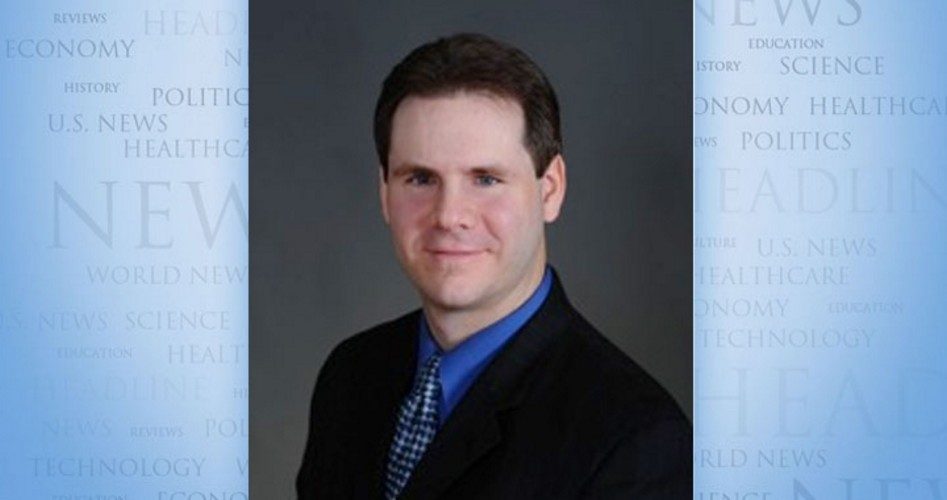
“SPREADING HATE: New study shows Trump presidency normalized hatred and bigotry in MAGA followers.” So reads an April 11 headline at the website Occupy Democrats. What the researchers themselves say is a bit different, however, though still seemingly damning. “We found that explicit racial and religious prejudice significantly increased among Trump’s supporters,” they write, “whereas individuals opposed to Trump exhibited decreases in prejudice.”
Yet those reading the actual study may conclude that this isn’t what the researchers, two psychologists, “found,” only what they claimed — and that they may be prejudiced themselves.
The study, entitled “Changes in Americans’ prejudices during the presidency of Donald Trump,” was published in the journal Nature. It was conducted by Benjamin C. Ruisch, a social psychologist and currently a lecturer at the University of Kent in Britain; and Melissa J. Ferguson, an experimental social psychologist at Cornell University.
The researchers begin their “Abstract” (summary) writing, “The presidency of Donald Trump represented a relatively unique event in modern American history, whereby a sitting US president made numerous controversial remarks about minoritized groups yet nonetheless maintained substantial public support.”
Given that Democratic President Woodrow Wilson claimed that government-mandated segregation “is not humiliating, but a benefit,” and wrote of “a great Ku Klux Klan” — and that Democratic President Lyndon Johnson reportedly boasted that because of his policies, “I’ll have those n****** voting Democrat for the next 200 years” — one could find the psychologists’ assertion puzzling. (Note that Trump never uttered anything of this nature.) But, all right, the pair do say that such “events” are “relatively” rare.
The researchers continue, “Trump’s comments constituted a departure from the egalitarian norms that had long characterized American political discourse.” Would these be norms such as Barack Obama calling his grandmother “a typical white person” or claiming that white working-class voters “cling to guns or religion or antipathy to people who aren’t like them?
Are they norms such as Hillary Clinton labeling half of Trump’s supporters “deplorables”?
Or would they be norms such as Jesse Jackson branding New York City “Hymietown” or Al Sharpton talking about “bloodsucking [J]ews” and “Jew bast**ds”?
Ruisch and Ferguson don’t say. But they do explain in their summary that they examined “the potential effects of Trump’s rhetoric on Americans’ attitudes, predicting that these high-profile norm violations may have reshaped the personal prejudices of the American people.”
“In 13 studies including over 10,000 participants, we tested how Americans’ prejudice changed following the political ascension of Donald Trump,” the pair elaborate. “We found that explicit racial and religious prejudice significantly increased amongst Trump’s supporters, whereas individuals opposed to Trump exhibited decreases in prejudice.”
Reacting to this, Occupy Democrats crowed, “You likely already expected it…” — and “13 studies” with “10,000 participants” does sound impressive. Yet it’s doubtful that the left-wing journalists seizing on the research actually read it. The study itself is hard to find, after all, being behind a formidable paywall at Nature (though I was finally able to access it through Ruisch’s personal website).
And the actual study itself is short on substance and long on bias. For instance, of the prejudice yardsticks the psychologists cite as having been used with participants was one, as they put it, “designed to be more subtle, in which negative attitudes towards Black people are expressed in the terms of principled conservatism.” To wit:
It’s really a matter of some people not trying hard enough; if Blacks would only try harder they could be just as well off as Whites.
Agreeing with the proposition was considered to reflect prejudice. But is this not a prejudice itself?
One must first ask: Is the quoted statement true? If the researchers would say no, do they believe blacks couldn’t equal whites because they’re less intelligent? They’d no doubt strenuously deny this, saying that what truly handicaps blacks is “systemic racism.”
Yet whether the proposition’s acceptance surely indicates prejudice hinges on the very question of whether it’s true, and this, in turn, hinges on the question of whether external forces — such as “systemic racism” — that are impediments to success actually exist.
But despite the claim that they do exist being itself controversial, Ruisch and Ferguson do something very unscientific: They accept this unproven external-forces assumption as axiomatic. They’re people of faith, apparently.
Now, note here that, as the word implies, “prejudice” means to pre-judge. From TheFreeDictionary.com’s entry “prejudice”:
a. The act or state of holding unreasonable preconceived judgments or convictions….
b. An adverse judgment or opinion formed unfairly or without knowledge of the facts.
Of course, you can still hold an “opinion formed unfairly” if you’re right for the wrong reasons. Nonetheless, you can’t know what may be a prejudice without first knowing what the Truth is.
For example, consider the statement, “Ashkenazi Jews are more intelligent than people of other groups.” An Ashkenazi Jew thus proclaiming could be a prejudiced person driven by group chauvinism, or he could simply be dispassionately relating IQ data. But the reality is that his claim does accord with IQ studies. So unless you can prove that research false — or that the person harbors some negative group chauvinism — there’s no evidence he’s prejudiced.
Moving on, Ruisch and Ferguson also write that they “did not directly assess participants’ attitudes towards immigrants. Rather, we assessed their attitudes towards another minoritized group, Muslims.”
This is interesting because they did claim to be measuring prejudice against immigrants, and some may say that equating Muslims with immigrants is itself a prejudice — and it certainly appears unscientific. But more striking still was a proposition the psychologists used to assess “participants’ explicit prejudice against Muslims.” To wit:
“Compared to other religious and philosophical approaches, Islam is quite primitive.”
Again, the researchers regard as axiomatic that the above’s acceptance reflects prejudice. Once more, however, glossed over is whether the proposition is true. (Just as with different ideologies, different religions can’t all be morally equal because they espouse different values. Believing otherwise reflects moral relativism, the notion that all “values” are equal. Of course, though, if this is so, then being prejudiced can’t be any worse than being non-prejudiced.)
Moreover, if you believe one philosophy or ideology — objectivism, humanism, libertarianism, conservatism, etc. — is inferior to another, does this ipso facto mean you’re prejudiced against its adherents?
“Muslims,” the people, are not “Islam,” the belief. Yet Ruisch and Ferguson apparently equate the two. Have they never heard the principle, “Hate the sin, but love the sinner”?
Also interesting is that the psychologists use the term “minoritized” — and not “minority” — groups. “Minoritize” means “to make (a person or group) subordinate in status to a more dominant group or its members.” Yet since numerical inferiority is not necessary for this status, many would say that, for example, whites are a minoritized group, having been diminished and dehumanized as inherently “racist” exploiters of “white privilege.”
This brings us to the main point: One can be prejudiced against anything, from a race to a sex to a political group to an auto manufacturer to a cookie. Yet aside from measuring prejudice incorrectly, Ruisch and Ferguson cherry-picked for examination only a few manifestations of it — politically correct ones whose analysis would provide a desired outcome.
But what if they’d measured changes in prejudice against whites, men, Christians, patriots, Trump supporters, pro-lifers, the Founding Fathers, Western culture, and our traditional heroes? What group do you think would have come out as the more biased under a truly comprehensive study?
A study of prejudice won’t be worth much when it’s full of pre-judgments.




